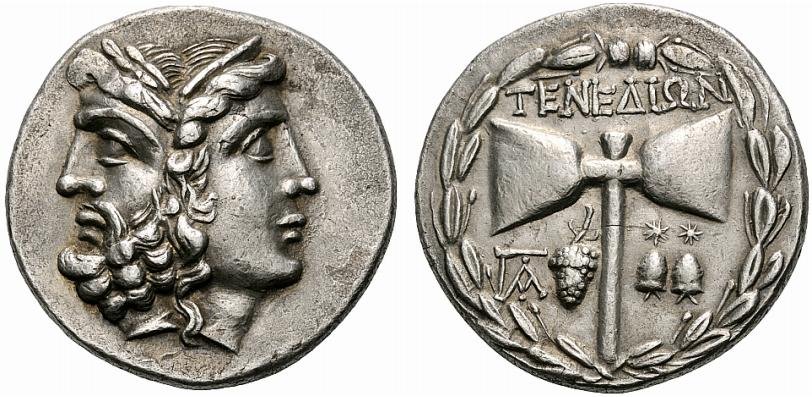During ongoing excavations in the ancient city of Tenedos, located on Bozcaada Island in the North Aegean Sea near Çanakkale, a 2700-year-old children’s cemetery has been unearthed.
 Ancient Greek tetradrachm coin of Tenedos, depicting Zeus and Hera, 100-70 BCE. Credit: Exeklas/Flickr
Ancient Greek tetradrachm coin of Tenedos, depicting Zeus and Hera, 100-70 BCE. Credit: Exeklas/Flickr
The excavations, led by Professor Turan Takaoğlu from the Çanakkale Onsekiz Mart University Department of Archaeology, reveal that children who died at an early age were buried with various grave goods in different types of tombs, including pithos tombs, amphora tombs, and stone-built tombs.
One particularly intriguing discovery was a pithos grave from the 6th century BCE, within which a second pithos grave was inserted during the 4th century BCE. This secondary burial contained six terracotta figurines and a bronze pin resembling a horse’s hoof, believed to have been offerings to the deceased.
Among these artifacts were depictions of two dancers adorned with Phrygian headdresses, a woman playing a lyre, and three standing women, indicative of the cult of Dionysus. Dr. Çilem Yavşan oversaw the restoration and conservation of these valuable findings, which have been delivered to the Troy Museum Directorate after the excavation season.
Professor Ömer Can Yıldırım, Vice President of Excavations, told İHA that the presence of these graves in the necropolis area, previously unknown in archaeological literature, provides new insights into ancient burial traditions. The placement of a second pithos grave within an earlier one is particularly noteworthy, indicating a unique burial practice.
Yıldırım further explained the artifacts found in these graves, including the terracotta figurines and bronze pin, offer valuable information about the cultural and religious beliefs of the people who lived in Tenedos during the Late Classical Period. The clothing styles and motifs on the artifacts suggest influences from eastern Phrygian culture and the cults of Cybele and Dionysus.”
The excavations received support from the Ministry of Culture and Tourism and the General Directorate of Cultural Heritage and Museums.
Bozcaada, formerly known as Tenedos, holds legendary significance, being mentioned in both the Iliad and the Aeneid. The island served as a strategic base during the Trojan War and later came under the control of the Achaemenid Empire, the Attica-Delos Naval League, the Empire of Alexander the Great, the Kingdom of Pergamon, the Roman Empire, the Republic of Venice and the Byzantine Empire.





